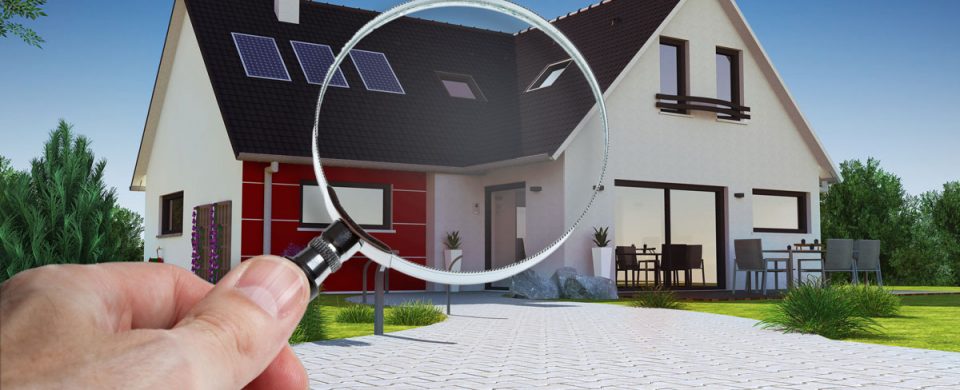


GET 3 FREE SUBMISSIONS OF ACCREDITED RESIDENTIAL APPRAISERS
Home appraisers and inspectors: 2025 Benefits and Costs

When you are thinking of buying or selling a home, the first step is to get a home inspection. Who do you look for to get a home inspected? Why is a home inspection important? How much will it cost?
These are the questions that we want to answer for you to help you in planning your home purchase or resale.
Furthermore, when looking for a home inspector, you need to know what to look for and what to expect to ensure that you get your full money’s worth.
The results of a home inspection by a qualified and experienced professional will guide you in making the right decisions regarding your property.
Fill out the form on this page to receive FREE and NO-COMMITMENT quotes from qualified home inspectors and appraisers in our network!
Home inspection or Home Appraisal: What is the difference?
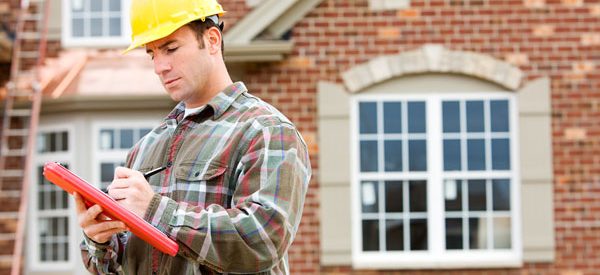
A home inspection looks at the exterior condition, structural integrity and the condition of a property’s components such as heating, ventilation, air conditioning, insulation, etc. The report will indicate the actual condition of these various components and any issues that pose risks. In short, a home inspection aims to inform what potential problems are identified so that a home buyer or homeowner knows what need to be done.
On the other hand, a home appraisal is designed to determine the fair market value of a property. A real estate appraiser’s report is based on the size of the home, age, condition, and amenities compared to the selling price of comparable properties in the area that were recently sold.
What does a standard home inspection cover?
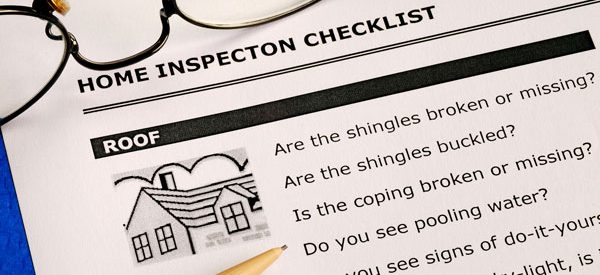
A general home inspector, as mentioned earlier, will look at the exterior condition of a property and its components to determine the general condition of the home. It will also include a check of the plumbing, electrical systems, roof, drainage, structure, and safety. The inspector’s observations of all these components will be mentioned in the report.
During the inspection, a home inspector will check the following:
· Exterior walls
· Foundation
· Garage/carport
· Roof, chimney, and attic
· Grading
· Water drainage and disbursement
· Porch, deck, or patio
· Wall coverings
· Yard or garden
Inside the home, an inspector will check the following:
· Plumbing
· Electrical systems
· HVAC system
· Appliances
· Bathrooms
· Flooring
· Windows and doors
· Basement and crawl spaces
· Lead paint
· Fire safety
· Ceilings
· Water drainage and disbursement
· asbestos
A homeowner planning to sell the home will know from a home inspection any potential problems that could derail a sale or lower the price. This is important so that these issues can be resolved before listing the property.
Canceling an offer to purchase based on the home inspection report
A conditional sale clause based on a pre-purchase home inspection can be added to an offer to buy a property. This allows a homebuyer to cancel the offer if the inspection report has negative findings.
Hence, a home inspection protects homebuyers from making a home purchase they will later regret.
How much is a home inspection in Canada?
A home inspection can take 3 to 4 hours to complete and costs from $400 to $600 or more. The final cost of a general home inspection will be based on a variety of factors.
· Type of home: Condo, semi-detached, single-family home, townhouse, etc.)
· Location
· Age of the home: older homes cost more to inspect
· Size of the home: larger homes cost more to inspect
When searching for a home inspector, it is important to hire a certified home inspector from your region or province. Some provinces in Canada, Alberta and British Columbia, require inspectors to be certified.
If your region does not require certification of home inspectors, make sure to hire one who is a member of the Canadian Association of housing and Property Inspectors (CAHPI).
What is included in a home inspection report?
An inspection report should contain the following:
· The inspector’s detailed observations regarding the property’s condition
· Defects, possible water infiltration, signs of mold, odors, and potential repair works
· Photos of the property
You can book a home inspection with a qualified home inspector from our vast network. In Quebec, the AIBQ or (Quebec Association of Building Inspectors) provides the reference standards for building inspection by its member professionals.
In Ontario, the OAHI, (Ontario Association of Home Inspectors), sets the standards of home inspection practices in the province.
We highly recommend that you hire a qualified and experienced home inspector or home appraiser. Connect with them using our short online form, free of charge!
Different Types of Home Inspections

We have covered above the standard general home inspection but before you finalize a real estate transaction, you may want to know about other types of home inspections.
Buying a property is a huge investment and a home inspection provides you with all of the facts. It is not only the aesthetics that is important but everything else that goes with the home!
Most general home inspections don’t include waste systems, sewer systems, asbestos, methane, radon, mold and mildew, rodents, and other risks.
You can request to add these other types of inspections to your home inspection but they will increase your final bill.
Sewer System Inspection
If you are buying an older house, you may want to have a sewer inspection. A specialized inspector will use digital cameras to take a look at the inside of the pipes connecting to the local sewer lines.
If you are buying a home in a rural area or with a septic system, an inspection will make sure it is in good working condition. You will also know whether you may need to replace or fix any issues in the future.
Roof Inspection
If you are thinking of buying an older home, you can consider a roof inspection to make sure that it is in good condition. Replacing a roof is very costly. By getting a roof certification, you will know whether the selling price is worth it or if you are looking at spending on a roof replacement or repair in the near future.
Plumbing Inspection
A licensed plumber can check plumbing and water systems, especially for galvanized pipes which can get clogged over time and will need replacement.
Electrical System Inspection
A general home inspector can determine if the electrical box is old or not up to city code but only a qualified electrician can determine issues and replace it.
Foundation Inspection
A general home inspection can ascertain if the home was built on a concrete slab or other type of foundation. However, he cannot determine if the foundation has damage or is at risk unless the faults are noticeable. Signs of damage such as large cracks or seepage will be noted in the report.
To learn more about the foundation, you may need to call a foundation inspector to make sure there are no structural problems.
Asbestos
Asbestos is a toxic mineral used many years ago in construction materials to insulate and make buildings fireproof. It can be found in plaster and cement, heating systems, furnaces, floor tiles, and siding.
If asbestos is present in the property, it is necessary to call in asbestos removal professionals before any renovation can be done. Materials with asbestos should also not be disturbed other than by qualified professionals.
Soil testing
If the property is located on the side of a hill, you don’t want to worry that it will slide when it rains hard. A soil stability test or inspection can determine this.
Mold inspection
Mold is a huge concern especially for families with children or individuals with certain medical conditions.
If you want to ensure that mold is not present in the property, you can call in a mold inspector. He will check the quality of the air in the home and check for spores that could migrate from one area to another in the home.
These additional inspections can be added to a general home inspection for a more meticulous and accurate inspection of a property. The results can help you discover more about a home you wish to purchase so that you can make a well-informed decision.
The importance of a pre-purchase home inspection

Buying a new home is a very exciting project and a hugely significant investment. This is a decision that you shouldn’t make without due diligence.
Check whether the home you are buying is as good as advertised, not only on what is easily seen but what could be hidden. You also need to make sure that the price you will be paying for the home is right.
This is where a pre-purchase inspection plays an important role.
A home inspection is necessary before submitting an offer on a home so you can have all the facts before you sign a contract.
By ascertaining the actual condition of the property you wish to own, you will know what you are getting into, including what future renovations or maintenance you need to prepare for.
What are the goals of a pre-purchase inspection?
Firstly, a home inspection will tell you the real value and condition of the property – if it is structurally sound, the state of the mechanical components, and potential problems you will need to resolve.
Secondly, a home inspection will allow you to address any issues with the seller before closing on the property. In most cases, a buyer can ask the seller to fix these issues or ask for a reduction of the price in account of renovation expenses.
How a pre-purchase home inspection works
Before the inspection, an inspector will check the seller’s property declaration (the year of construction and condition of the property to the seller’s knowledge).
It is advisable to be present during a home inspection so that you can observe and understand the report later on.
The home inspector will write an inspection report with their observations and comments and submit it within the agreed upon timeframe.
There are several steps to be followed when purchasing a real estate property. The pre-purchase home inspection is usually done after an offer to purchase is accepted by the seller.
When you apply for mortgage financing, you should find a home inspector and schedule the inspection within the timeframe indicated in the offer to purchase.
While a pre-purchase home inspection is an additional expense, it is a buyer’s right and you should take advantage of it.
Who needs a home appraisal?

For homeowners who want to know the value of their property, the best way to do so is to get a home appraisal.
Hiring a professional appraiser who can provide an unbiased opinion on the property’s value will help you to set an attractive selling price.
Oftentimes, homeowners place an emotional value on the home and be misled into asking for too high a price. This can scare away potential buyers and delay the sale.
Of course, there are other instances when a home appraisal is appropriate, such as when:
· Purchasing a home or building
· Selling a home or building
· Estate planning
· Litigation
· Retirement planning
· Home insurance coverage
· Planning a renovation
· Bankruptcy
· Property tax assessment appeal
· Capital gains
Whether you are buying or selling the house, a home appraisal is a quick process and reasonable in price. The appraiser will charge a flat fee our hourly rate. The final price will depend on how much work the appraiser will need to do based on the size and complexity of the property.
Benefits and cost of a home appraisal
A home appraisal costs anywhere from $600 to $750 but properties that require more extensive evaluation by the appraiser could cost $1,200 or more.
The price of a home appraisal varies widely because each home is unique. If a property is complex, the cost is higher. In metropolitan areas like Toronto and Ottawa, it is not unusual for home appraisals to cost $600 or more.
What does a home appraiser do?
An appraiser will examine the components of a property that could have an impact on its market value.
He takes into account factors that include the home’s physical attributes and any of its detached buildings. He looks at the quality of the home’s materials and finishes and the systems for heating and cooling. He also takes note of any improvements on the property and the quality of the work as well as any required repairs.
Because of an appraiser’s knowledge of construction and the real estate market, he can make an accurate estimate of the property’s market value after expert comparison with other similar properties in the area that have been recently sold.
Thus, a consumer pays for the unbiased and independent opinion of a qualified appraiser regarding the value of the property.
Who will pay for a home appraisal?
If the home appraisal is being performed for the purpose of obtaining a mortgage, the homeowner pays for the appraisal but the lender is considered the client.
The appraised market value of the property will influence your ability to take out a mortgage, how much you can borrow and pay for, and whether you can refinance an existing mortgage.
Hence, based on the AIC’s Canadian Uniform Standards of Professional Appraisal Practice, any information regarding the appraisal cannot be disclosed to other parties without the client’s consent.
A homeowner can also hire an appraiser before listing a property to help in determining a good selling price.
It is best to hire a qualified appraiser registered with the Appraisal Institute of Canada (AIC).
Sample costs of appraisals based on the type of property
The cost of a professional appraisal will depend on the type of property. Below you will find some typical prices for real estate appraisals.
|
|
|
|
|
|
| Duplex | $525 to $700 |
| Triplex | $700 to $800 |
| Quintuplex | Up to $900 |
A land appraisal is harder to do. Professional appraisers usually base their evaluation on 3 methods- sales comparison, cost, or income approach.
A condo is very similar to a standard home. However, there are many other similar properties for comparison so finding the market value is much easier than a single-family home.
Usually, appraisal fees for residential properties range from $420 to $630 but they are more expensive in larger cities. Sometimes, the cost of an appraisal can also be high in rural areas due to a lack of comparable properties or because of unusual conditions.
Factors that influence the price of a property
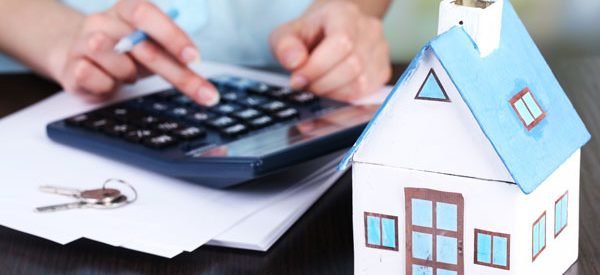
Professional appraisers use a set of factors to estimate the market price of a property.
The property’s location
This is one of the most significant factors in estimating a property’s value. Is it near local schools and commercial properties? Is it located in an upscale neighborhood? The better the location, the higher the market value of the property.
Square footage
The property value per square foot within neighborhoods tend to be similar. Hence, the market value of the property is calculated based on square footage.
Age of the property
The age of the home also influences the price because of building materials and codes as well as maintenance. Newer or modern homes generally have a higher value.
Existing upgrades
Certain renovations can increase value but if the home is improved too much compared to other similar properties in the area, the value could go down.
Home inspection vs. home appraisal
Now that we have thoroughly discussed home inspections and home appraisals, you may have gathered that they are not the same.
Home inspections generally protect the interests of a buyer while a home appraisal protects the interests of the lender.
If you are buying a house, you need a pre-purchase home inspection before making an offer to purchase the property. You will also be required to pay for a home appraisal fee by your potential lender.
On the other hand, a seller can also get a home inspection to make sure that buyers will not find any problems with the property that could derail a sale.
A home appraisal, on the other hand, can guide the seller in determining the fair market price. A home appraisal report will act as leverage for the seller when a potential buyer negotiates the price.
Preparing for a home appraisal

The conditions that influence the value of a home cannot easily be changed. But there are certain preparations you can do:
· Hire a reputable appraiser from your area. A good knowledge of the local real estate market and construction will enable an appraiser to make a fair assessment more easily.
· Undertake home renovations of value. If you want to increase home value with a home renovation, choose projects with high impact and ROI. Your real estate broker is a good person to ask for advice or ask your appraiser.
· Clean the home well. Of course, a clean home will reflect more positively on the appraiser. As he will be examining all major areas of your home, a general cleaning is in order.
FAQS about home appraisals in Canada
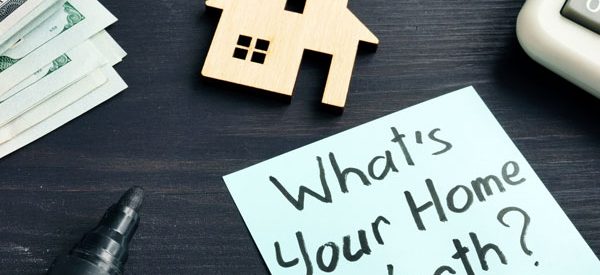
If you need a home appraisal for a real estate transaction, you will surely have questions on your mind.
Below we present some of the most frequently asked questions about home appraisals to help you in your search.
What do home appraisers look at during the appraisal?
Home appraisers look at the value of other similar properties sold recently and current real estate trends. The amenities, number of rooms, floor plan, and the size of the home, improvements, and mechanical components also influence the appraised value.
Can a property fail in a home appraisal?
Most home appraisals performed are related to mortgage transactions. A poor appraisal of a property will mean that a mortgage application will be disapproved. It could also mean a lower loan amount approved by the lender.
What is the difference between the value of a property from a real estate broker and an appraiser?
Real estate brokers have a good knowledge of the real estate market and can give an insightful opinion on a home’s value. However, they usually base their estimation on the average prices of similar listings. Thus, the value is not as accurate as the estimate of a real estate appraiser who will consider the actual condition of the home.
How long does a home appraisal last?
The actual viewing of the property can be for just 3-4 hours but the completion of the appraisal report after viewing can take a few days.
What home renovations add the most value to a home?
Not all home renovations add value to a home. Certain projects provide more value than others. For instance, kitchen and bathroom renovations add more value than the addition of a swimming pool or landscaping. Some small-scale renovations can also add high value such as doors and window renovations, siding renovations, or energy-efficiency upgrades.
Is a home inspection and home appraisal the same?
A home inspection checks on the condition and size of the elements of the home including plumbing, heating, structure, roofing, etc. to form an evaluation of the home’s overall condition. The inspector will not provide a market value.
A home appraisal, in contrast, will assess the size, number of rooms, condition of the home, and compare it with other properties in the area to assign a fair market value.
Who issues the licenses of real estate appraisers?
In Canada, The National Association of Real Estate Appraisers (NAREA) licenses and regulates real estate and property appraisers.
When is a home appraisal done during a real estate transaction?
A home appraisal is done after the seller and buyer enter into an agreement for the purchase of a property.
Do most houses get appraised for the desired selling price?
Generally, houses are assessed close to the selling price, especially when the seller is represented by a reputable real estate broker. This is because sellers receive valuable advice from their brokers regarding comparable sales in the area. Some sellers, however, overestimate the value of their homes. When the selling price is higher than the appraised value, a buyer may withdraw the offer unless the seller lowers the price.
Find the best professional for a home inspection or appraisal
Whether you need a home inspection or a home appraisal, we got you covered!
Our network consists of real estate professionals, including home inspectors and home appraisers, who can confidently assist you in your transaction.
Our partners have been verified 100% based on their qualifications, insurance, quality of service, and track record for your safety and satisfaction.
Choose a reputable professional for your real estate transaction by
filling out the form on this page!
Get free and no-obligation quotes to save time and money!
Comments are closed.



GET 3 FREE SUBMISSIONS OF ACCREDITED RESIDENTIAL APPRAISERS
Copyright© 2025 Compare Home Quotes.
Oolong Media





